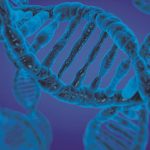- A cancer chemotherapy treatment, autologous haematopoietic stem cell transplant (AHSCT) has been used to treat MS for many years, but gold-standard trials comparing AHSCT to other MS therapies have been lacking.
- The ‘MIST’ trial of AHSCT was run from 2005 to 2016 in the USA and other countries and compared AHSCT to standard MS therapies available at the time.
- Participants in the trial had very active MS that had failed to respond to standard MS therapies. They were randomly assigned to receive either AHSCT or another MS treatment.
- Results show that patients receiving AHSCT had improvements in disability scores and significantly fewer relapses compared to those on standard MS medications.
In March last year, we shared with you the encouraging preliminary results of the ‘MIST’ trial which were presented at the Conference of the European Society for Bone Marrow Transplant. The full results of the trial, which compared AHSCT to other available MS therapies and was led by Professor Richard Burt of Northwestern University, Chicago, USA, have now been published in the Journal of the American Medical Association (JAMA)
AHSCT involves using cancer chemotherapy to completely or partially remove the immune system. The extent of immune system destruction depends on the chemotherapy regime used. The immune system is then regrown by transfusing the patient’s own blood stem cells back into the body. Further background information on this treatment can be found on the MS Research Australia website.
The clinical trial was initiated in Chicago and also included several other sites in the USA, UK and Europe. 110 people with very active relapsing remitting MS (two or more relapses in the preceding year despite treatment) were enrolled into the trial between 2005 and 2016. Following some drop-outs and exclusions, the data for 103 participants was analysed. The participants had an average age of 35 years (ranging from 18 years to 54) with disability levels ranging from scores of 2 to 6 on the Expanded Disability Status Scale (EDSS).
The participants were randomly split into two groups with one group being treated with AHSCT using the cyclophosphamide chemotherapy regime which removes the circulating immune cells but leaves the bone marrow relatively unscathed (known as non-myeloablative). The other half of the participants were treated with approved MS medications which included mitoxantrone, glatiramer acetate, interferon-beta, fingolimod, dimethyl fumarate and natalizumab. All neurological assessments were performed by doctors who were unaware (blinded) as to which treatment the individual had received.
The participants were followed for 1 to 5 years after the AHSCT treatment. The outcome of the treatment was primarily measured by progression of disease, which was defined as a worsening of one point or more on the EDSS scale after at least one year. If those in the standard MS therapy group experienced progression after at least one year of treatment, they ‘crossed over’ and were then treated with AHSCT. 30 of the 50 participants in standard medication group met this criterion and received AHSCT. In contrast, only 3 of 52 participants treated with AHSCT from the outset experienced progression.
As a group, the participants treated with AHSCT had an average improvement in disability of 1.02 points on the EDSS scale, whereas those receiving standard medications had an average worsening in EDSS disability of 0.67 points.
The researchers also looked at the occurrence of relapses and MRI lesions in the two groups. At one year of follow-up, 1.92% of AHSCT-treated participants had experienced relapses compared to 64.3% of participants receiving standard therapies. After five years of follow up 15.4% of the AHSCT-treated participants had experienced relapses compared to 85.2% in the standard therapy arm. There was also a reduction in the total volume of existing MRI brain lesions in the AHSCT group, compared to an increase in the volume of lesions in the standard therapy group. Measurements of quality of life also showed improvements in the AHSCT group compared to the standard therapy group.
The research team reported no deaths and there were no life-threatening adverse events as a result of the AHSCT treatment. These results, which are in keeping with the international data that has been accumulating on this treatment for MS, indicating that AHSCT is a potentially important treatment option for people with aggressive relapsing MS who fail to respond to other MS therapies. In particular, having data such as this from a randomised controlled trial provides further confidence for clinicians about the potential place for AHSCT in the range of treatment options available for people with MS.
An accompanying editorial commentary on the study, published in JAMA, did note an important limitation of the study was that the participants in the comparison arm did not have access to some of the more recent highly effective therapies such as alemtuzumab (Lemtrada), oral cladribine (Mavenclad) or ocrelizumab (Ocrevus). Therefore, the relative efficacy of AHSCT against these types of medications still remains unclear.
In Australia AHSCT for MS is currently provided as part of observational clinical trials at the Austin Hospital in Melbourne and St Vincent’s Hospital in Sydney. Patients must be referred by a neurologist and have failed to respond to other MS therapies to be eligible. More details on these studies can be found at www.mstrials.org.au.
For more details on AHSCT for MS and the results other international studies please visit our website.
Note: MS Research Australia does not endorse any particular treatment for MS. MS is an extremely variable condition and people can respond differently to treatments. Treatment decisions need to be taken in conjunction with a neurologist and should take into consideration the unique health and life circumstances of each individual, together with the relative risks and benefits of each treatment for the individual.





